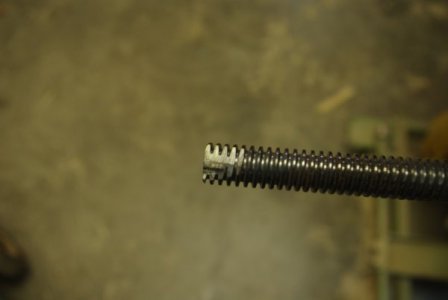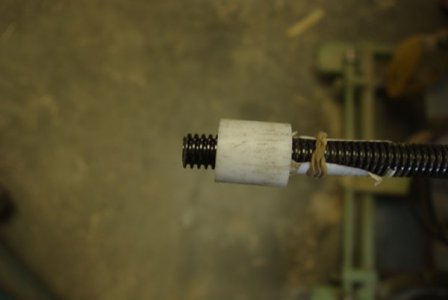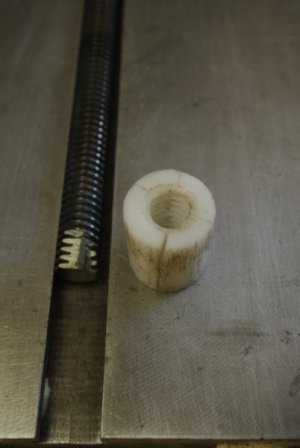4
4GSR
Forum Guest
Register Today
Plastics like Delrin work extremely well for lead screw nuts in applications where the atmospheric conditions are clean, free of crud, dust, etc. They have to be run against a lead screw that has a ground and polished thread. They can be run dry or lubricated with mineral oils or hydraulic oils or PTF base silicone grease. This is why you see them used in the food industry with the proper food grade lubricants. As for putting a Delrin nut on a lathe, its a toss up which way to go on this. If your lead screw can be kept cleaned and lubricated and not heavily used, it will probably be fine. This is only good if your lead screw is in good shape and not worn. You practically have to use a new screw with polished thread flanks to get good life from a Delrin nut. Delrin can only handle about half the load of a bronze nut, so no heavy feeding! Most of us don't have to worry about this in our H-M environments. I would say there is a size limitation on how big of a lathe to try this on. In my opinion, don't try on anything bigger than a 12" or 14" lathe. Ken



